5 ways Xiaomi's Mix Flip 4 beats Samsung Galaxy Z Flip and Motorola Razr
We tried the Xiaomi Mix Flip and here are its best features

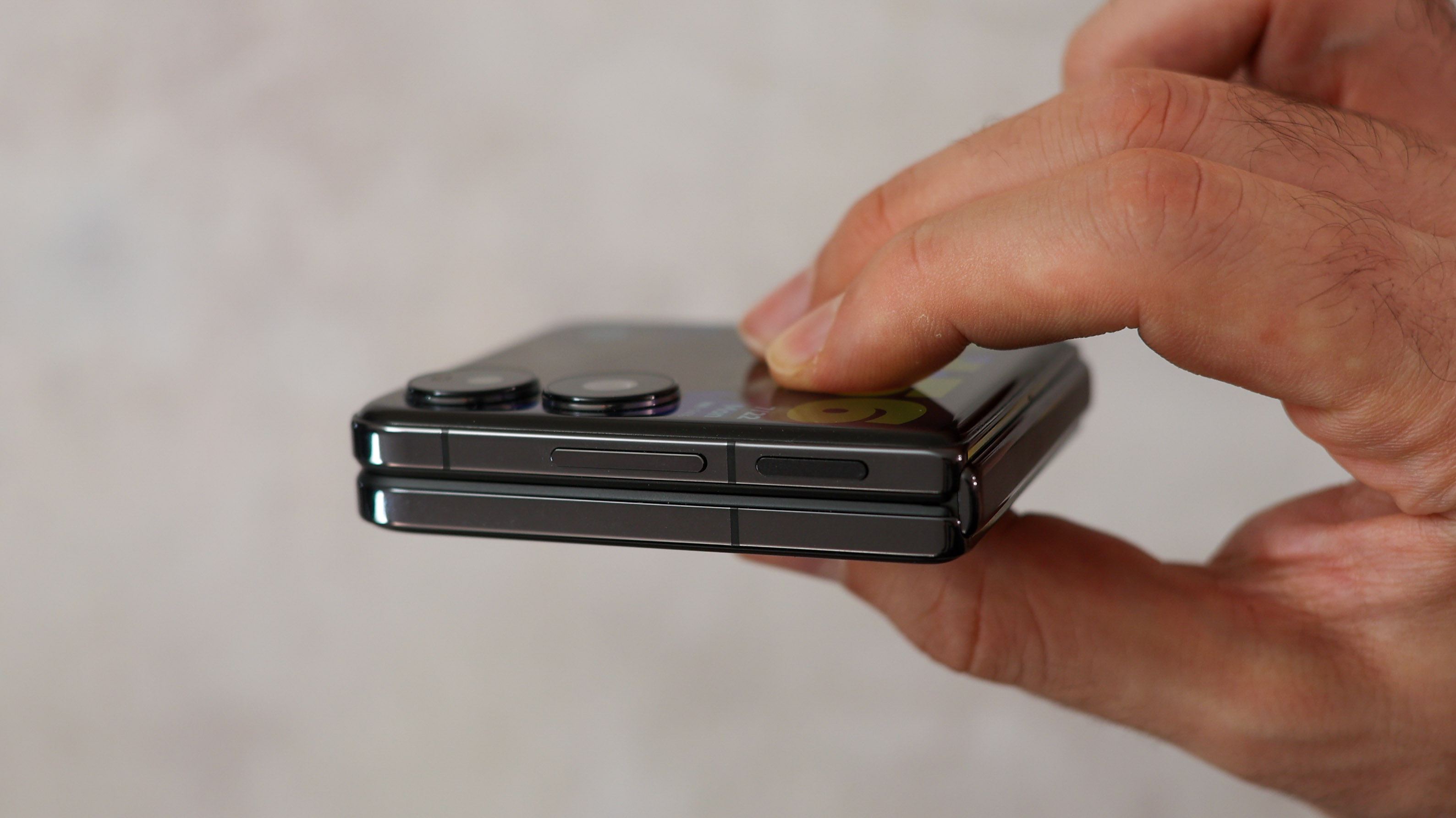
Xiaomi announced its new foldables for 2024, with the big-screen Mix Fold 4 packing some uncompromising specs, and the pocketable Mix Flip marking Xiaomi's flip phone debut. The Flip is seriously flagship, with the latest power, the two biggest screens of any flip phone, and the beefiest battery of the bunch too.
With Motorola having just launched the excellent Razr 50 Ultra (Razr Plus 2024 in the US), and Samsung's Galaxy Z Flip 6 throwing AI smarts at us with reckless abandon, the Mix Flip has tough competition. But after a few days with Xiaomi's Leica co-engineered foldable, here are some of its features and party tricks that best Samsung and Motorola's best foldable phones.
1. Closed calling
When you're using a Motorola or Samsung Flip phone, you can make calls on the phone when it's closed by activating the speaker phone. If you want to have a standard call that doesn't activate the loudspeaker, you'll have to open it up and chat on it like a traditional phone. But not on the Xiaomi Mix Flip.
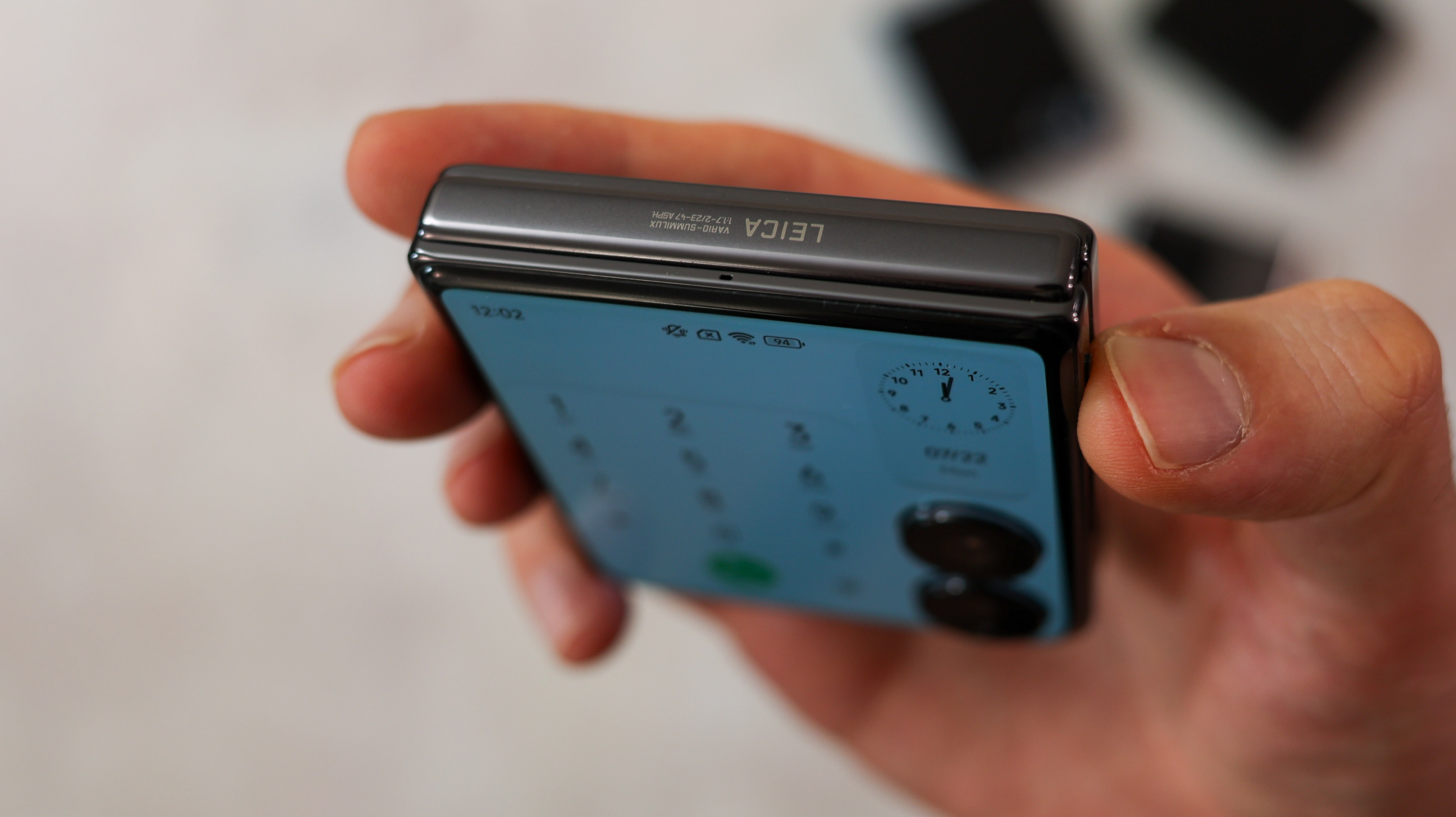
Xiaomi's added a microphone right by the hinge, so even when it's folded you can chat on it held up to your ear. You'll hear everything through the speaker at a volume only audible to you, and the microphone will make sure the person on the other end gets a clear conversation.
I tried the closed calling feature and it did a good job indoors, making it a handy addition when you want to avoid a fumble trying to open your flip phone when taking an incoming call.
2. Cover screen UI
Flip phone cover screen interfaces are all a little different. Motorola's Razr 50 Ultra has a simple, almost square screen with a user interface (UI) that's most similar to a standard smartphone's Android interface (plus some specialist widgets and layouts).
Samsung's cover screen UI is a bit more locked down, adopting more of a card-style system with some limited apps access (which has to be activated). Both are displayed in landscape orientation.
Get all the latest news, reviews, deals and buying guides on gorgeous tech, home and active products from the T3 experts
The Oppo Find N3 Flip, meanwhile, has a vertical cover screen that's smaller than Z Flip and Razr equivalents.
Xiaomi combines the size of Samsung and Motorola's flip phones with the portrait orientation of Oppo's, making for a unique approach. On the left side is a section for apps. Because this section is tall, not wide, apps are displayed in a similar way on the Mix Flip cover screen to how they are displayed on a typical phone.
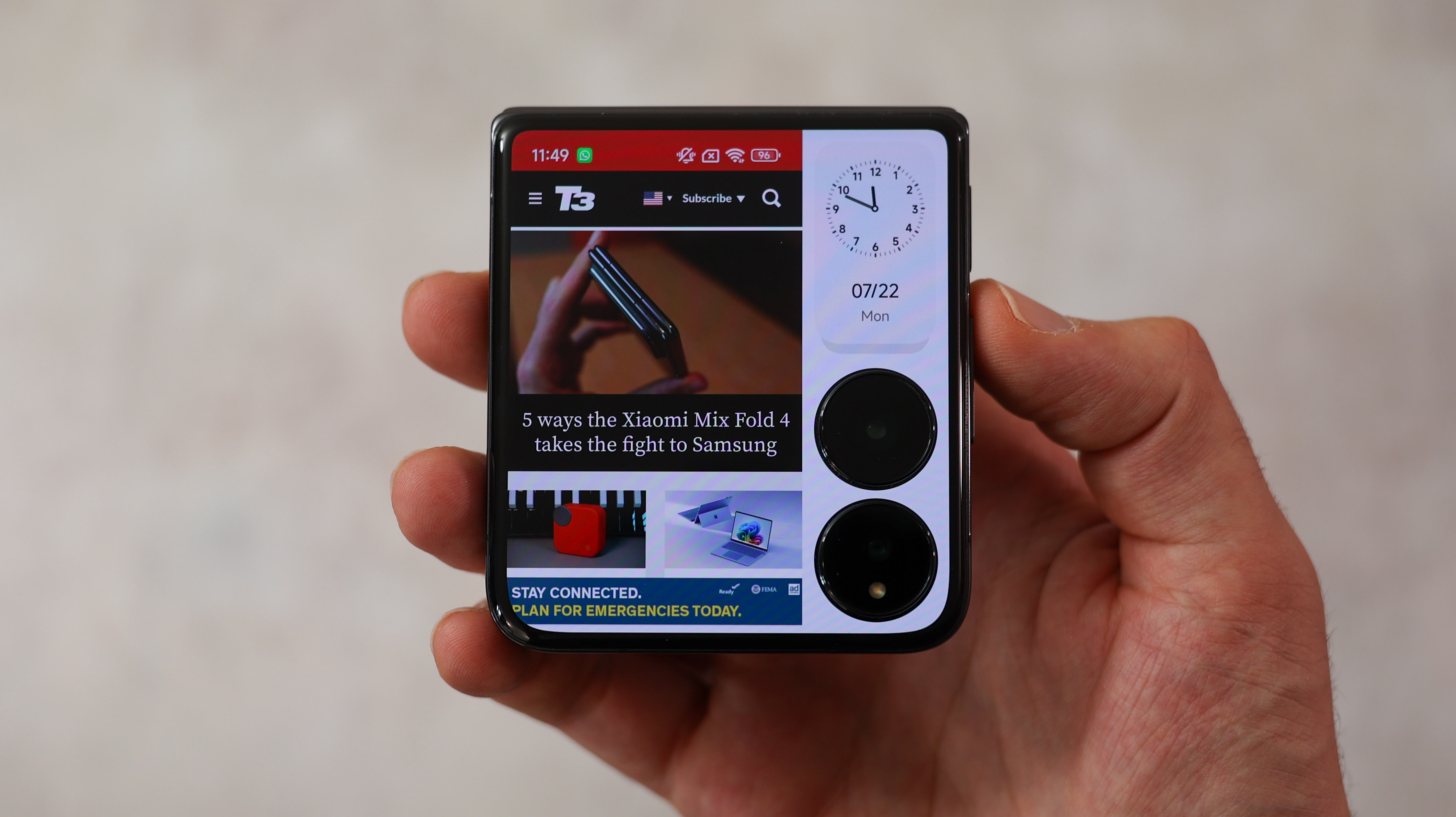
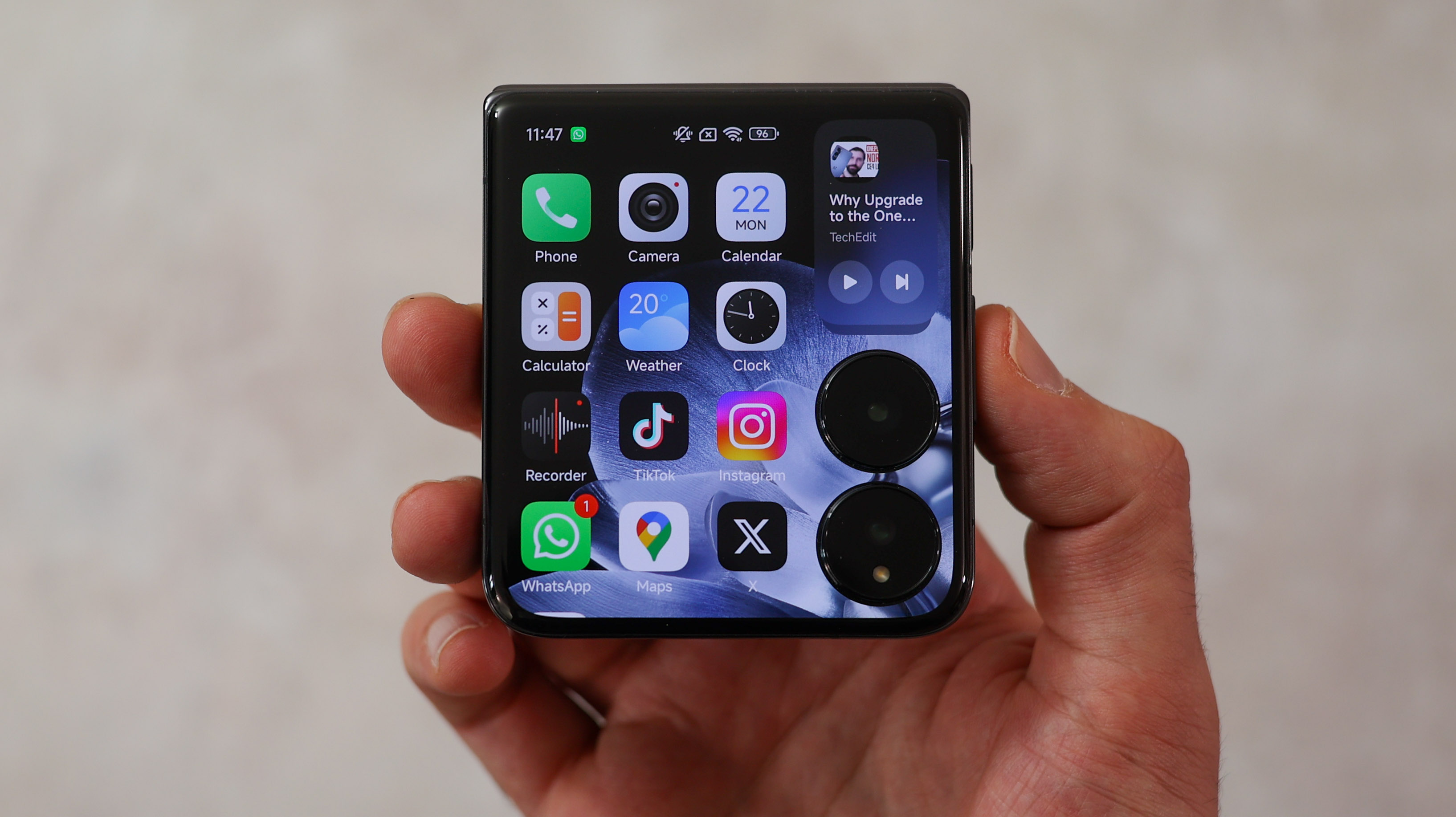
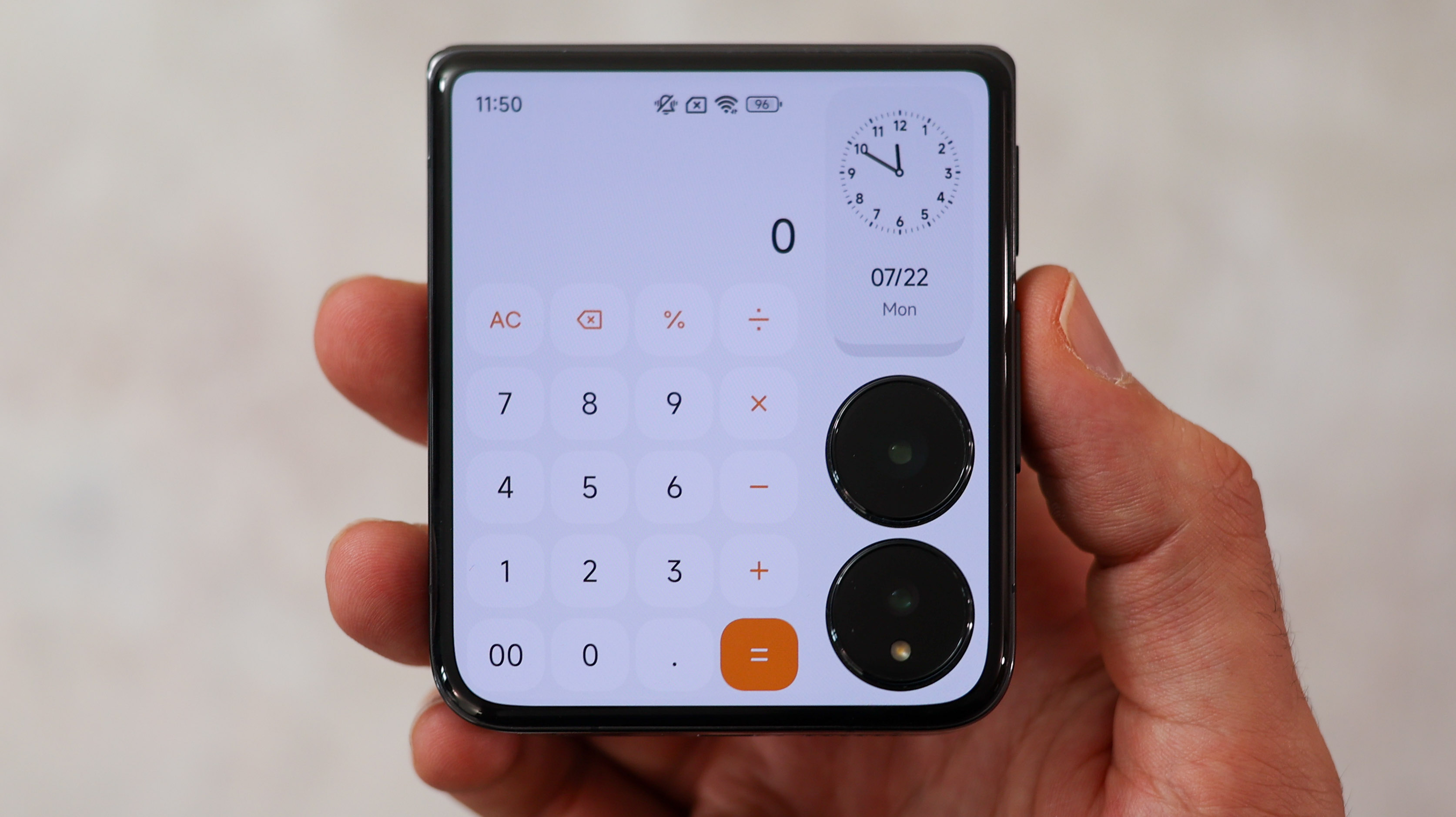
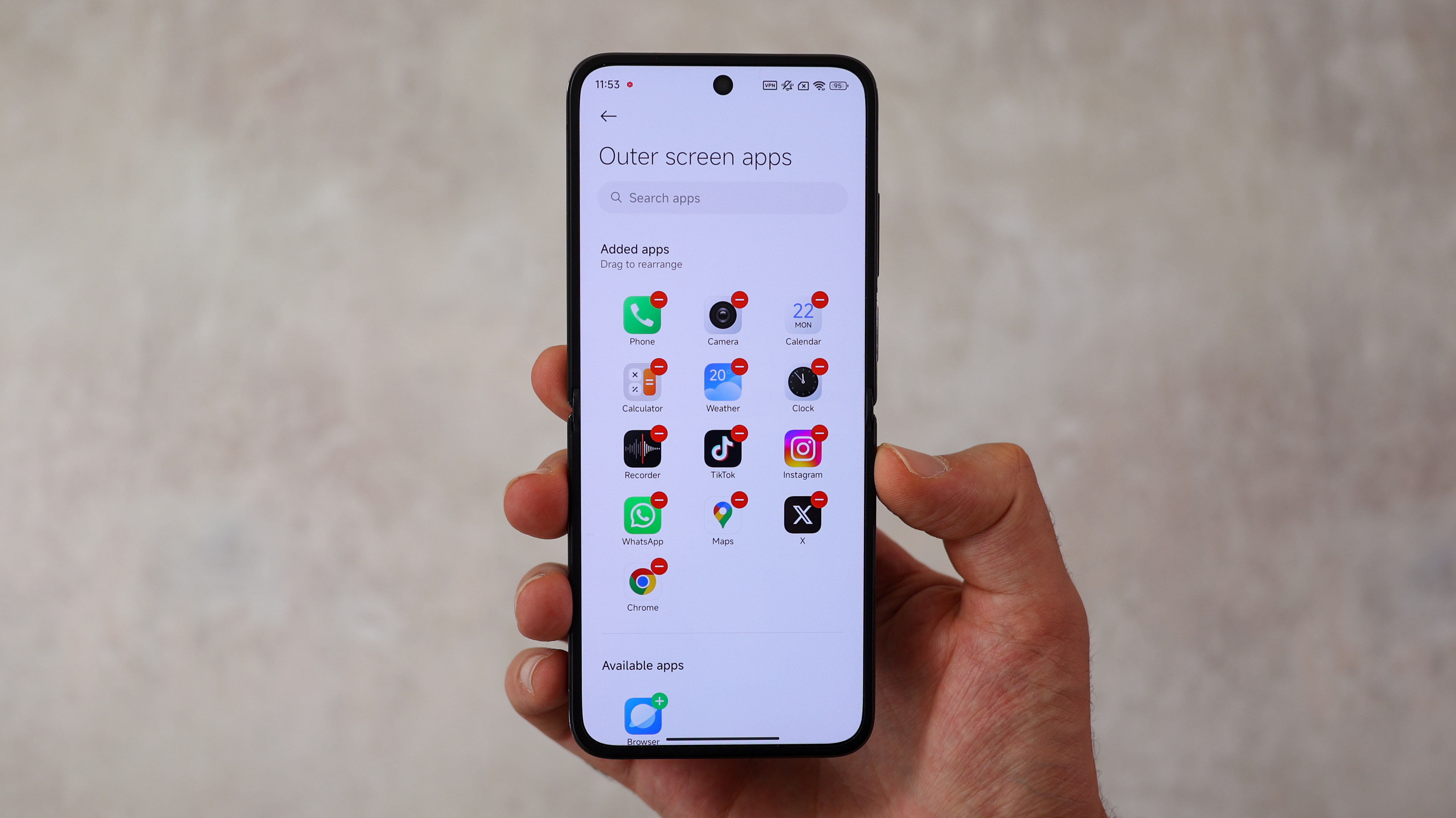
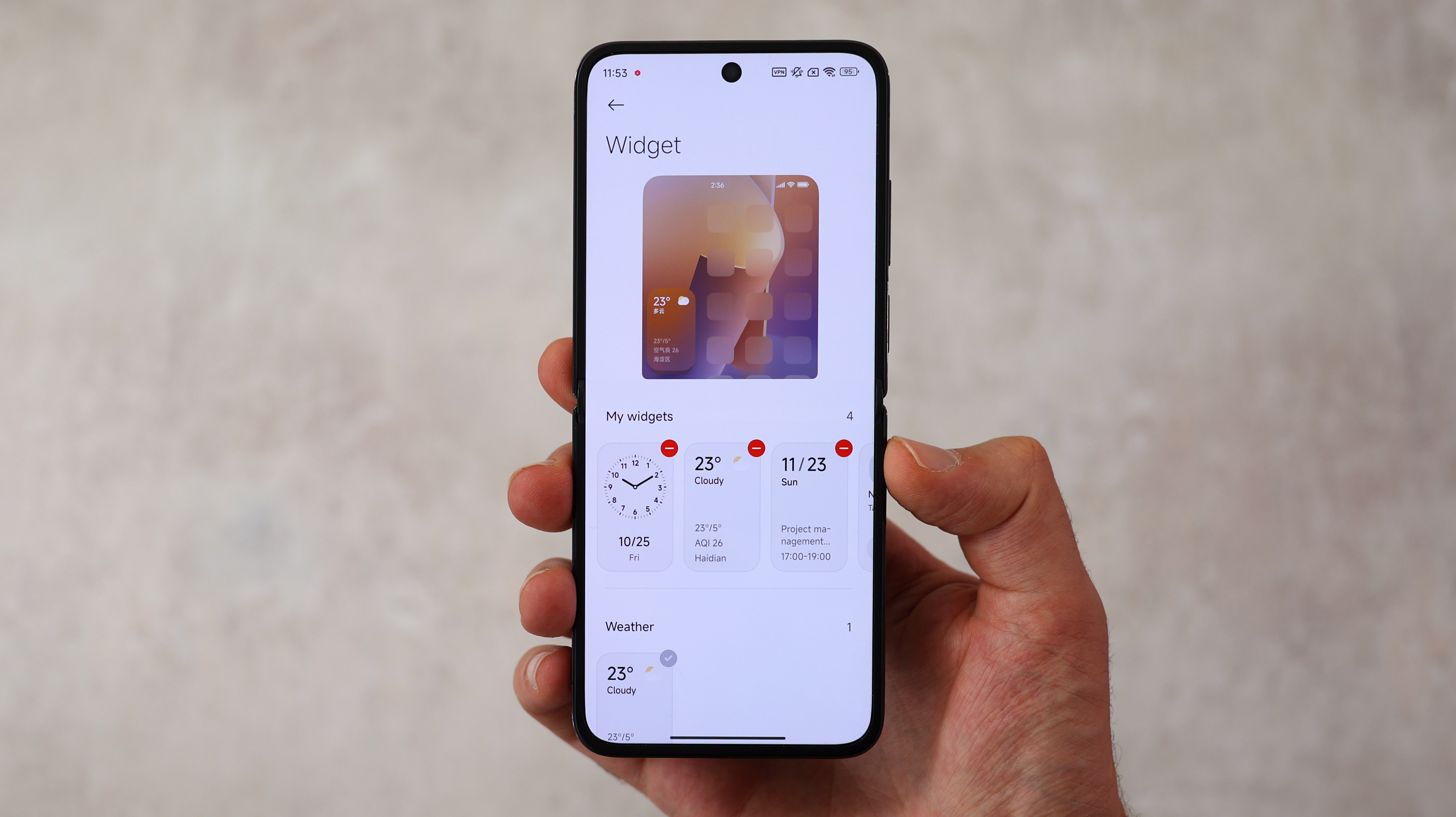
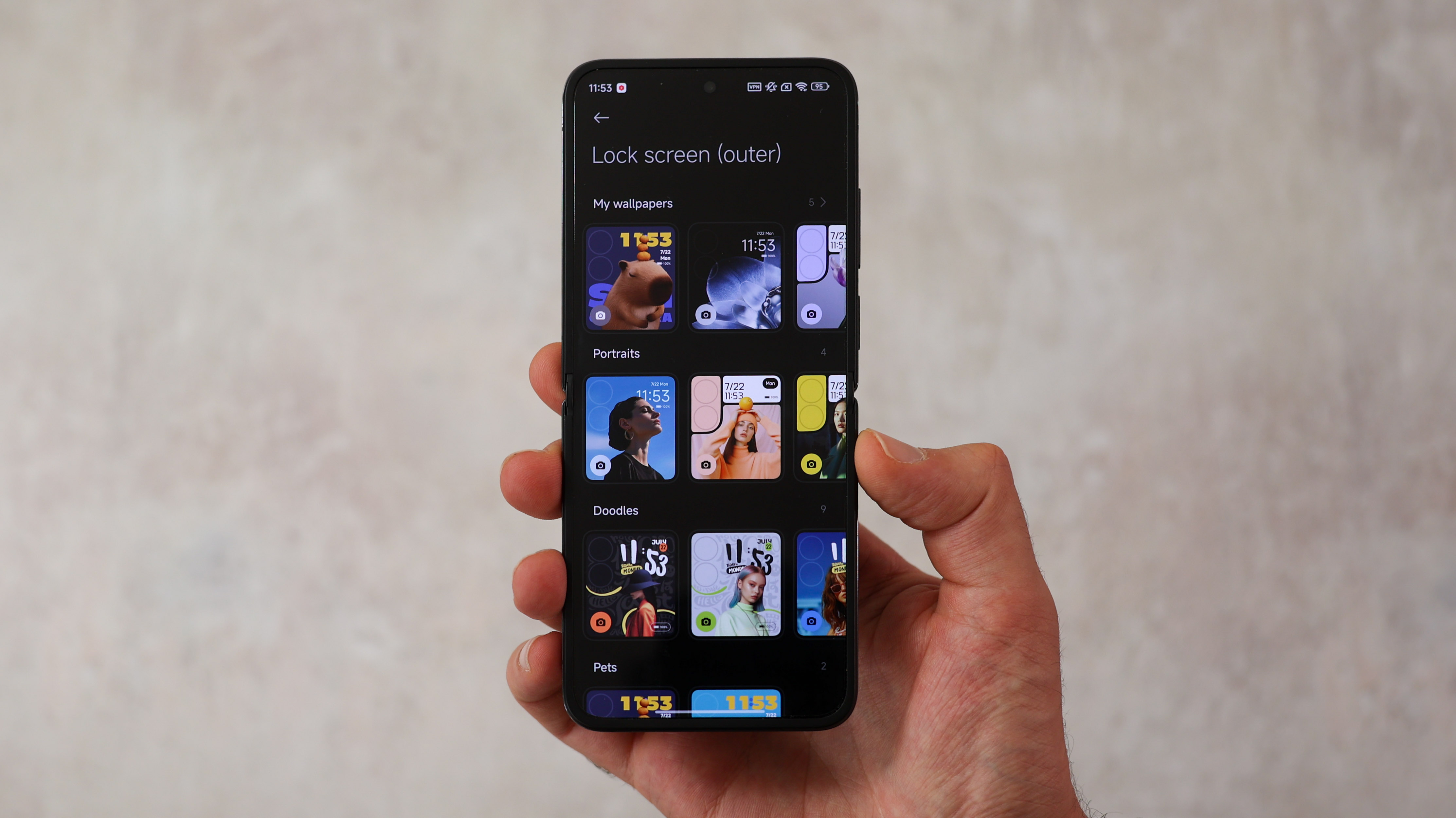
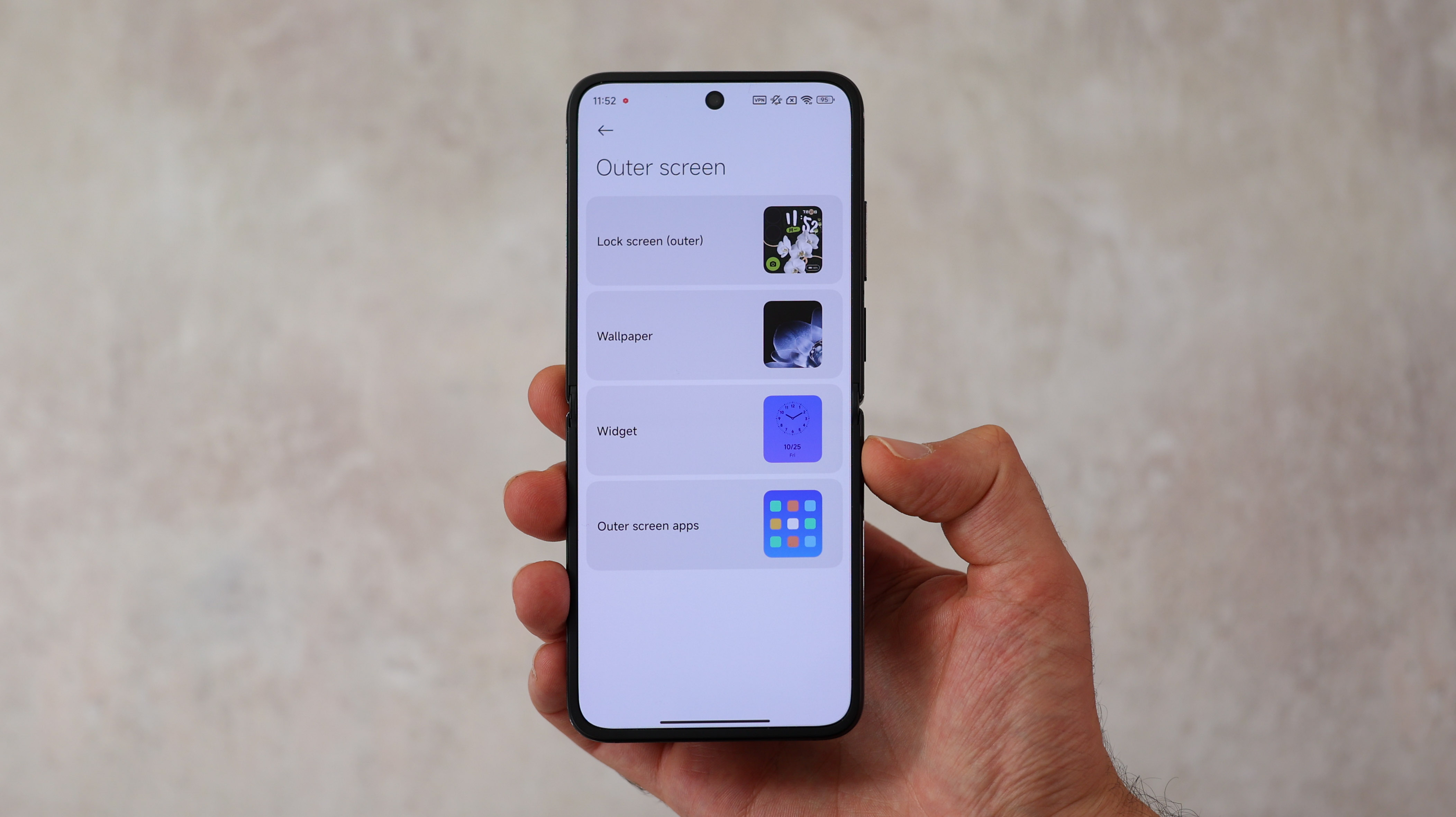
On the right side of the cover screen above the two cameras is a sticky widget. Here are media controls, a clock, a calendar, and other tools you can swap out. These appear whether you're in an app or have the app menu active, only disappearing when the cover screen wallpaper is active.
The benefits are that many apps like TikTok just look better tall. The downside of Xiaomi's system is text entry. Typing on the left side of a small keyboard isn't great. While Moto unlocks access to all apps on its Razr 50 Ultra cover screen, Xiaomi only permits a handful, making it much less versatile out of the gate.
3. Leica cameras
Flip phone cameras always take a hit on quality, but the Leica co-engineered Xiaomi Mix Flip's dual-camera setup packs solid specs and the promise of Leica's tuning.
The main camera on the Mix Flip has the same sensor found in the Poco F6 Pro, but is upgraded with a glass lens element and that Leica tuning. It's a 50-megapixel camera with an f/1.7 aperture lens and optical stabilisation (OIS) to keep things steady. The sensor is slightly bigger than the Galaxy Z Flip 6's and significantly larger than that of the Razr 50 Ultra, which is a great start.
Just like Motorola, Xiaomi has ditched the secondary ultra-wide camera in favour of a zoom portrait camera. This has a 2x lens, a wide f/2.0 aperture, and a 9cm nearest-focus distance. That means it will be able to zoom into faraway subjects and shoot close-up macro photos, too.
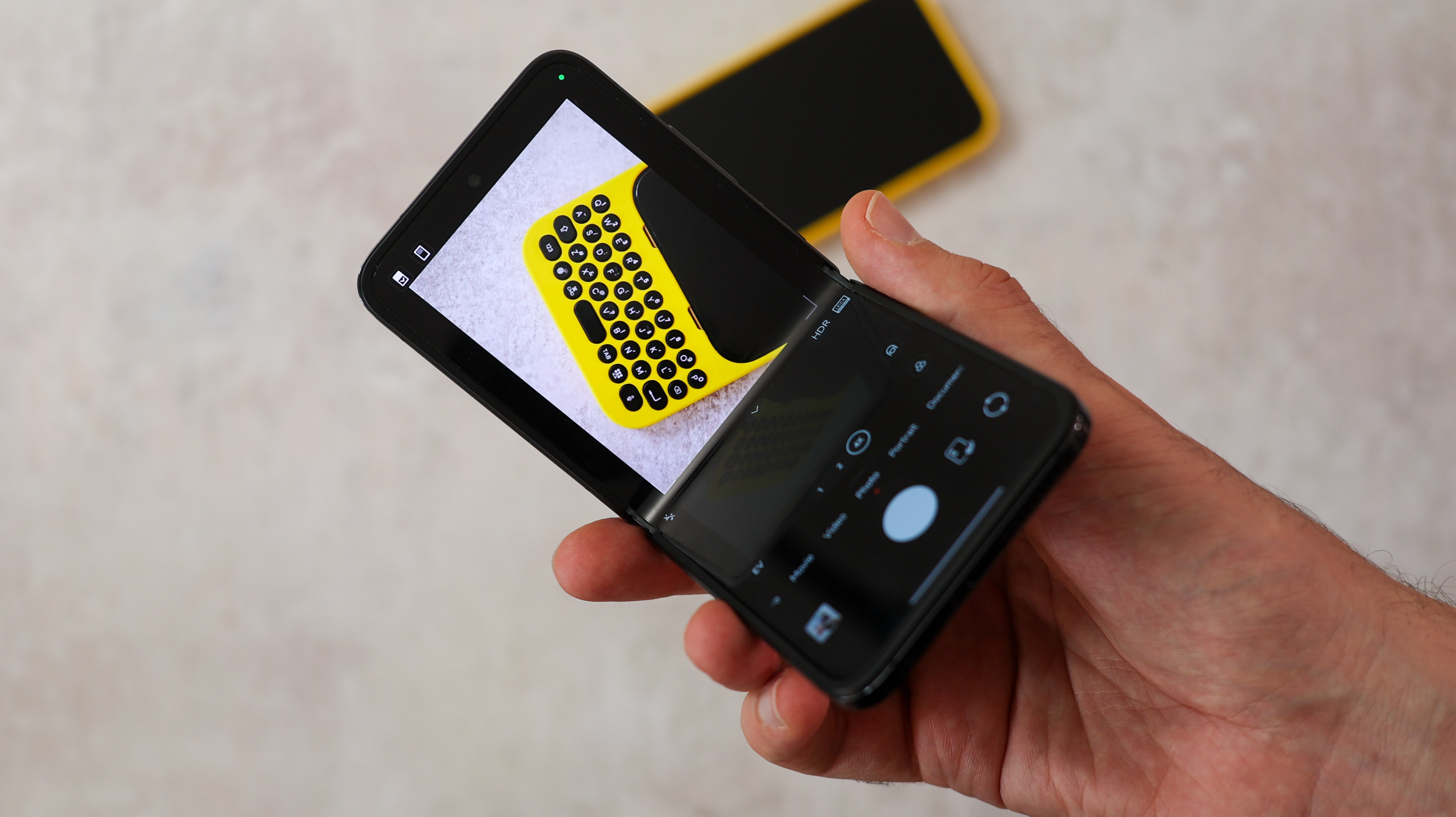
After some initial testing, at the very least, the Mix Flip has the best close-up photography of any flip phone I've used, making it a good option for close-up product photography, and anyone who likes snapping flowers or other intricate subjects.
The Leica features are also nice-to-haves, with either Leica Vibrant or Authentic looks to choose from, a portrait mode that mimics the style of Leica's popular lenses, and a nifty Leica watermark for your snaps. Being a flip phone, you can also take cover screen selfies and part-folded photos and videos – just like the competition.
4. Big battery
Most flip phones shrink down their batteries, with both the Samsung Galaxy Z Flip 6 and Motorola Razr 50 Ultra packing 4000mAh cells. This is good enough if you're mainly using the smaller cover screen, but heavy inner display use at high brightness will drain flip phones in double time.
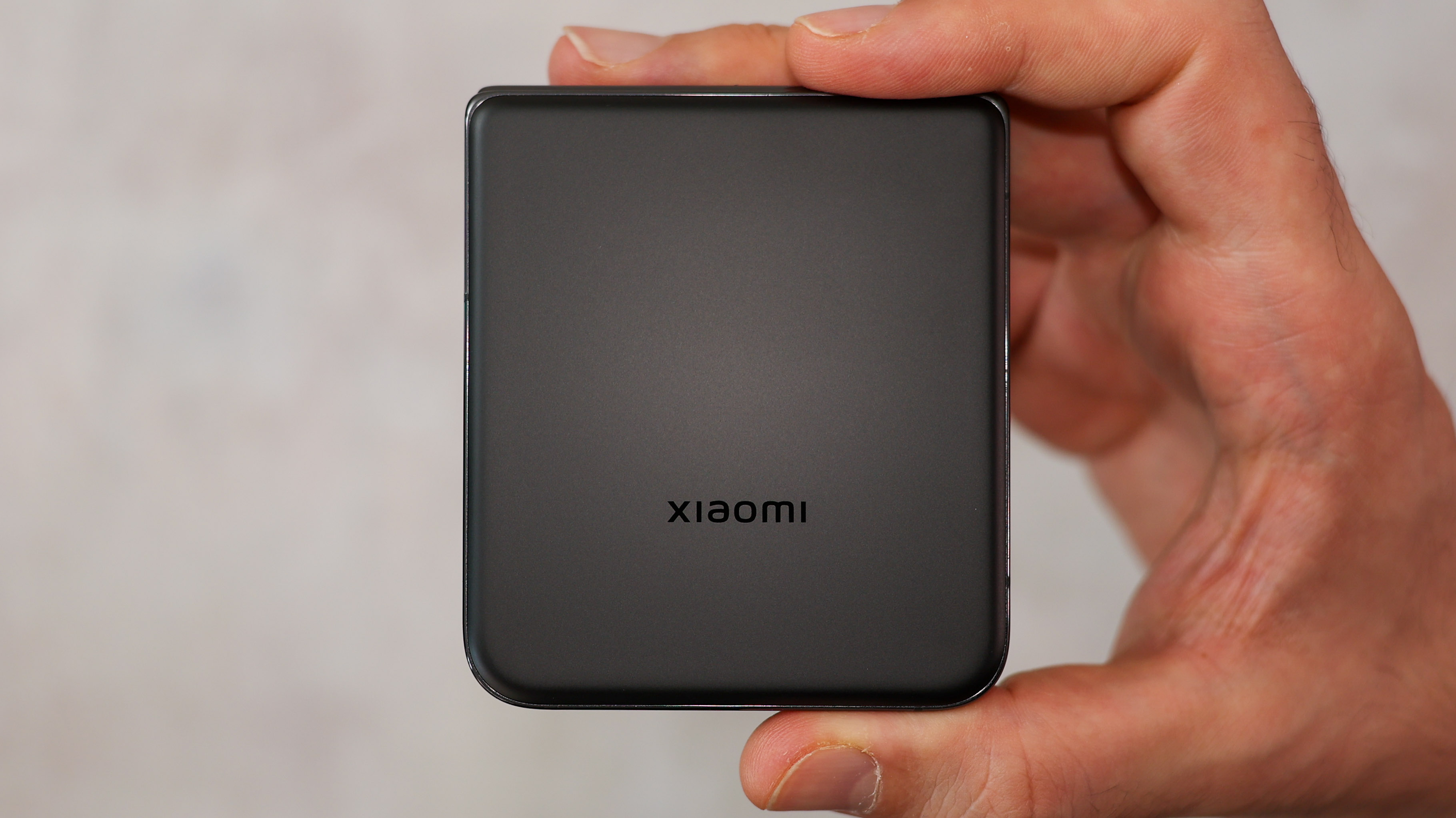
The Xiaomi Mix Flip, by comparison, squeezes in an ample 4780mAh cell, which is bigger than an iPhone 15 Pro Max battery.
This is the highest-capacity battery of any flip phone right now, making the Mix Flip a potential champion for power users and frequent travellers who want a compact foldable device in their pocket.
5. Faster charging
Another feature to take a hit on flip phones is charging speed. This is likely because of heat build-up – fast-charging generates heat – by folding in half, thus flip phones struggle to dissipate the temperature.
The Galaxy Z Flip 6 powers up at 25W wired and the Razr 50 Ultra at a comparatively nippy 45W. With 67W fast charging, however, Xiaomi's Mix Flip significantly beats both of its main competitors, recharging fully in under 40 minutes from flat.
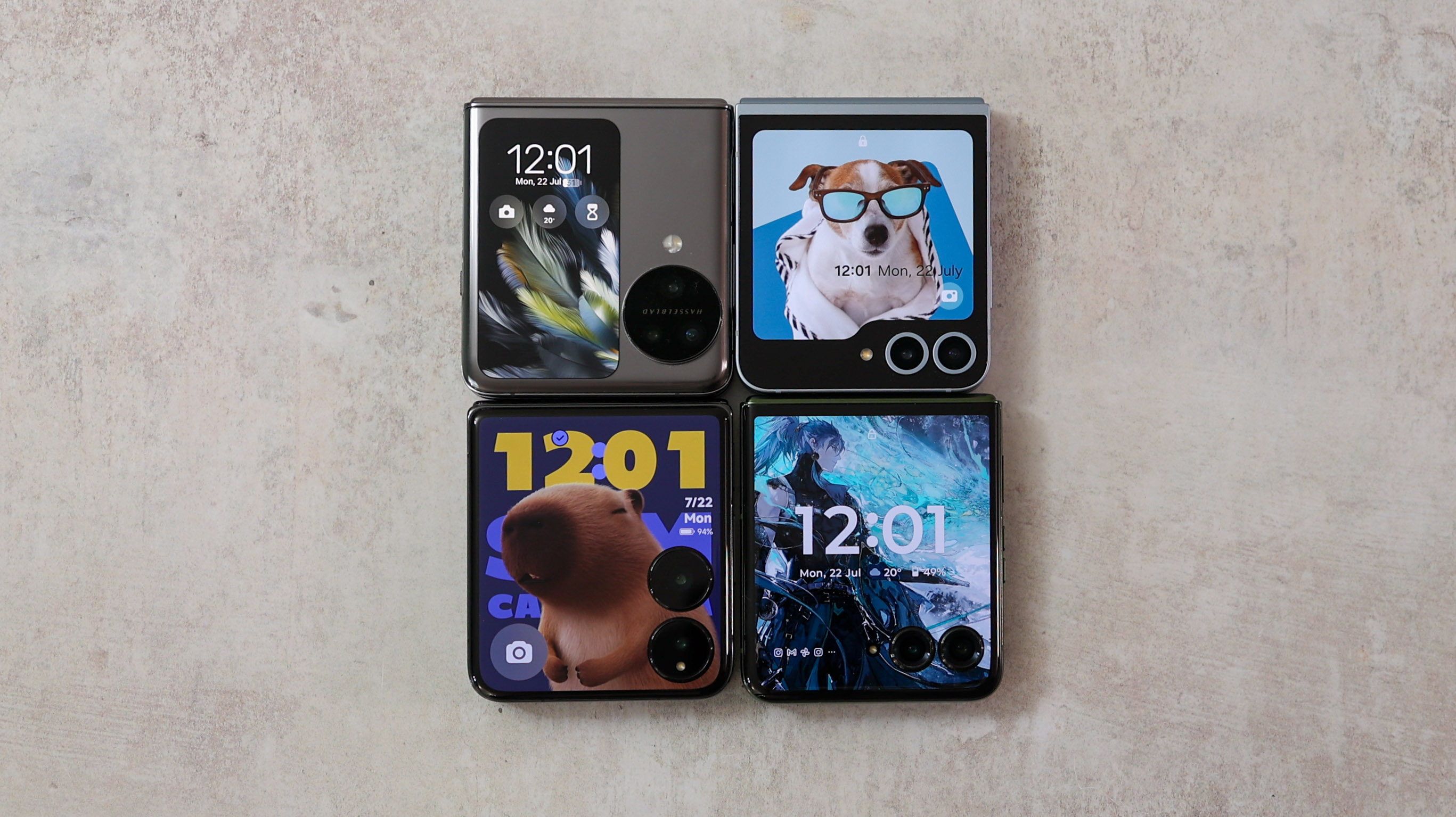
There is a trade-off, however, and that's wireless charging, with both the Mix Flip's competitors packing in the feature, but Xiaomi's flip phone missing out on it.
Initial impressions
While the Mix Flip has only officially launched in China, with the phone getting a Hong Kong version – a tip-off that a Chinese phone will launch further afield – it looks like it could be Xiaomi's first global foldable, likely launching in Europe in the next few months.
If the Mix Flip does indeed land on local shelves, it will be some welcome competition for Samsung and Motorola. Its cameras look set to clinch a win over the Z Flip and Razr competition, the battery should last longer, it packs flagship-tier power, and the massive cover screen looks immense.
I wouldn't call the Xiaomi Mix Flip the best foldable phone of 2024 just yet though. The version I've been testing isn't running final software, and right now the cover screen is a bit too locked down. So as it stands, the Razr 50 Ultra is still the flip phone of choice, but that could all change if and when Xiaomi decides to drop its mighty Mix Flip internationally.

Basil has been writing about tech for over 12 years, with bylines in TechRadar, Metro, Wired, and Digital Camera World – to name but a few titles. He expertly covers everything from mobile phones to smart devices, cameras, audio-visual hardware, and kitchen tech. In addition to his extensive journalism experience, Basil is also skilled in video production, content strategy, and vegan baking, and runs Tech[edit], a technology-focused YouTube channel.